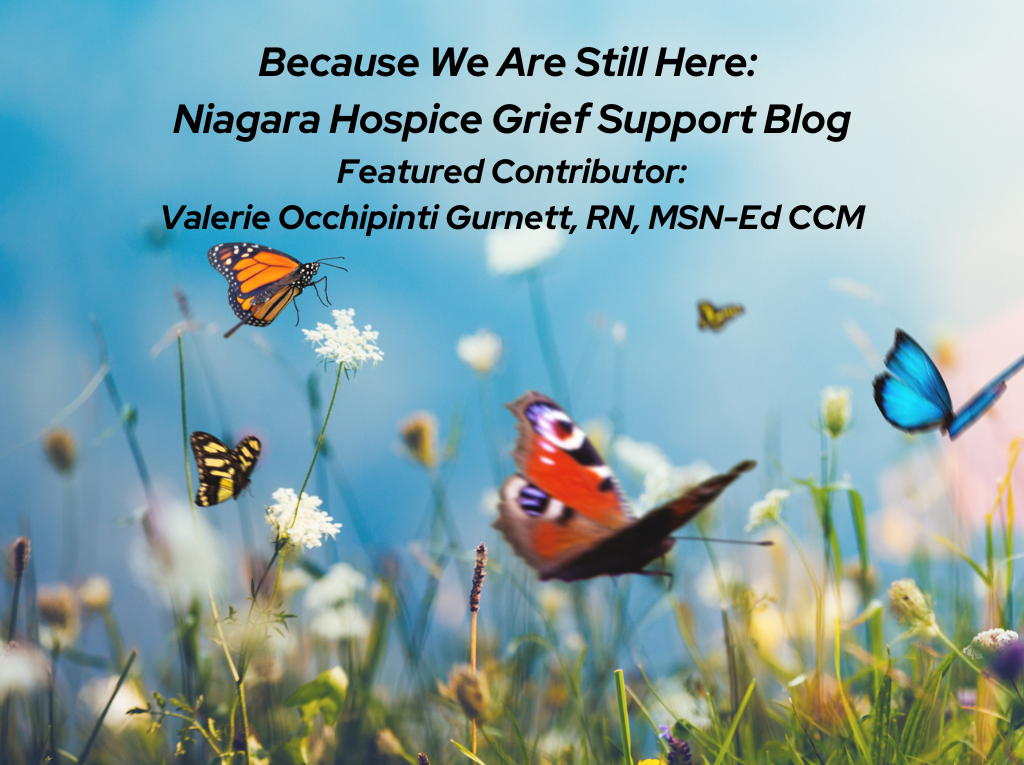I Am Still Here
written by Valerie Occhipinti Gurnett, RN, MSN-Ed CCM
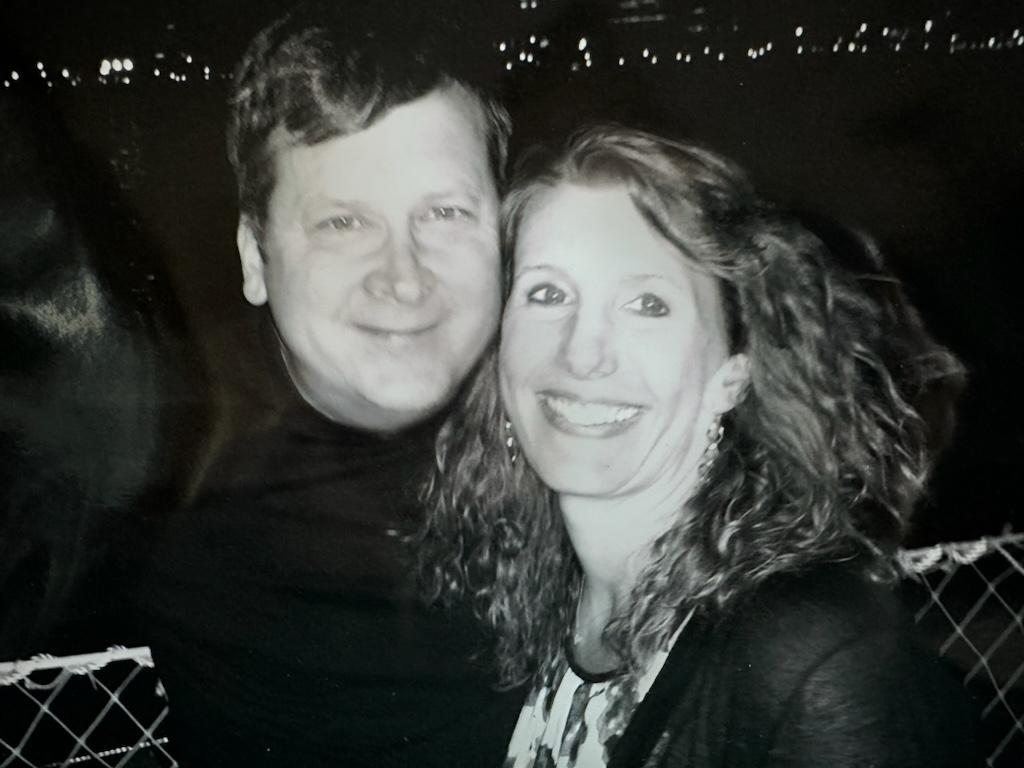
I am still here, and this is my story…..Mike was my cheerful, fun, and creative husband and bestie who kept me grounded. He was the guy who was a friend to everyone he knew; it didn’t matter to him what your background was or where you grew up, skin color, or rich versus poor. Once a person became his friend, he always kept track and put forth the effort to call and “shoot the bologna.” Mike believed in this and taught me that open communication is the life-giving oxygen that fuels relationships. You see, he came from a large, loving family and made me promise before marrying him that I would never sweep anything under the carpet. You might surmise that we had a beautiful relationship and were there for each other through thick and thin. Mike was diagnosed with an aggressive, hard-hitting form of cancer during the pandemic and had several complications following multiple surgeries. As a nurse, I am well aware there are times when, despite best efforts, medical can not repair every illness. Mike’s health declined, and death was upon us in March 2022. The following month, I healed from COVID-19 symptoms, and then the next storm front moved in as my healthy father sustained a life-threatening thalamic stroke. Meanwhile, my sweet mother’s health began to worsen, and she passed away at Christmas; I was unable to come up for air as they were all under my care. I lost my three favorite people, all within nine months of each other, in 2022. Time stopped, nothing made sense, peoples comments and platitudes started rolling in only to make me feel more alone and abandoned; it was as if no one understood.
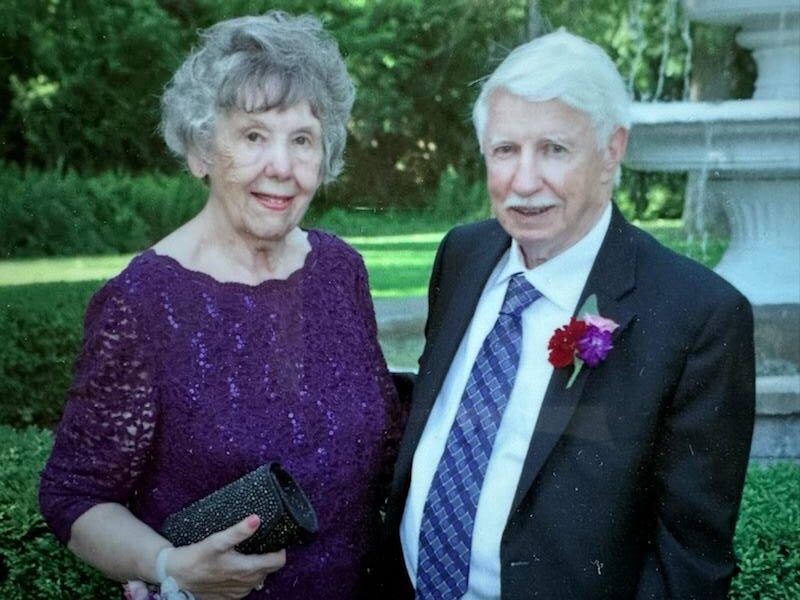
My healing journey and acceptance of multiple loss and agonizing grief began with the New Year 2023. According to Harris (2017), surviving tragedy presents us with a choice of whether to endure or become stuck, and I liken this to being suppressed under the carpet; Mike wouldn’t want me to do this. I made the choice to figure out how to carry this unrelenting grief, this gut-wrenching ache for reality to be different, and the awareness that “my three” will never come home or back. My journey comprised a million small steps to make life worth living. It took courage and a great deal of introspection to comprehend that it’s not one way or another way. Grief is not right or wrong; it is not black or white and is not about justice or injustice. I had to come to grips with the fact that grief’s cousins, anguish and sorrow, are a part of love; they are not separate countries; it is not one or the other. Grief is a love for self, for others, and for life. We can’t hold onto anything in this world, but we can hold onto love by carrying it through to live the life that has been asked of us. I learned that love has this way of linking us to what is now, what was once, and what is to come. It’s the same way that slow-paced songs are associated with sadness, and fast-paced songs are recognized with happiness. Musicians must learn to play both the sorrow and the joy in life.
I recall the morning of my hooding event as I finished graduate school; I was pacing back and forth in the cemetery, walking between my parent’s gravesite and my husband’s site. I couldn’t grasp how going to a happy occasion would be acceptable, “I lost my three favorite people, and they’re not here to see me graduate.” At that moment, pacing back and forth, I realized that my heart was big enough to hold space for sadness and happiness together. I realized that this is not a problem to solve; it’s more of a mystery to learn to carry with me. So, I went to the ceremony, holding a photo of each of my three people. Do you hear what I am saying? I was an emotional wreck, but steady, I established equanimity. As I stood on that platform I was filled with hope, you see our perseverance produces hope. Hope is an optimal state of mind; it’s where we start to expect good that positive things will come. You might not feel any hope or balance right now; I didn’t either, but it came, and someday, it will wash over you, too.
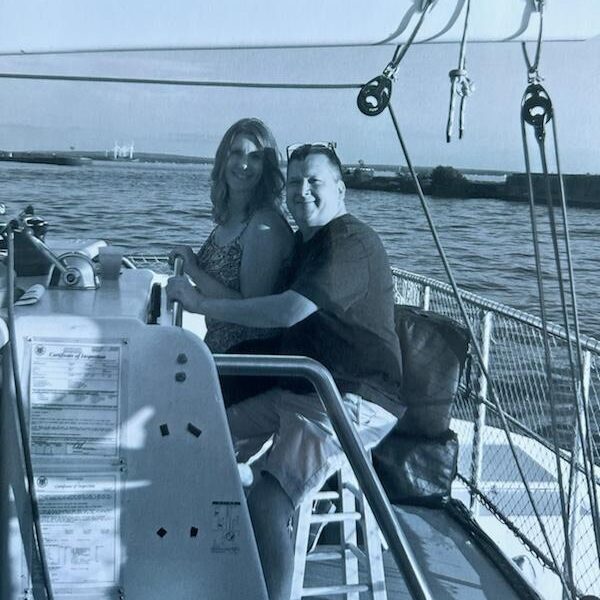
It takes much stamina to deal with every emotion that comes out of nowhere, as grief does not disappear, and to grasp the underlying feelings of each emotion. I wrestled with keeping space between myself and the various emotions. Realizing I would never be the person I was before meant that I needed to align my new self with my core values and beliefs. I had to discover what was important to me and what was important for me; there is a difference.
Don’t be afraid to ask yourself during the grief season to look at what makes things worse right now; what makes things a bit brighter for me? What brings me closer to myself? What small thing can I do that will soften this morning or get through this evening?
I found that daily affirmations were a powerful tool that allowed me to show myself compassion and love in a way that I never knew before. I would write simple phrases down on index cards and then say them out loud; hearing these positive statements created lasting changes in my mindset. Research has shown that affirmations create new neural pathways; it is similar to re-programming our brain in a good way. Piece by piece, I began to accept my new reality, and softness set in as I believed these phrases. For a time, my affirmations looked like this:
I say no to depression
I say no to discouragement
say no to despair
I say yes to love
I say yes to joy
I say yes to hope
I accept healing from the loss of my husband
I accept healing from the loss of my father and mother.
I will heal
I love myself no matter what has happened
I am open to receiving healing
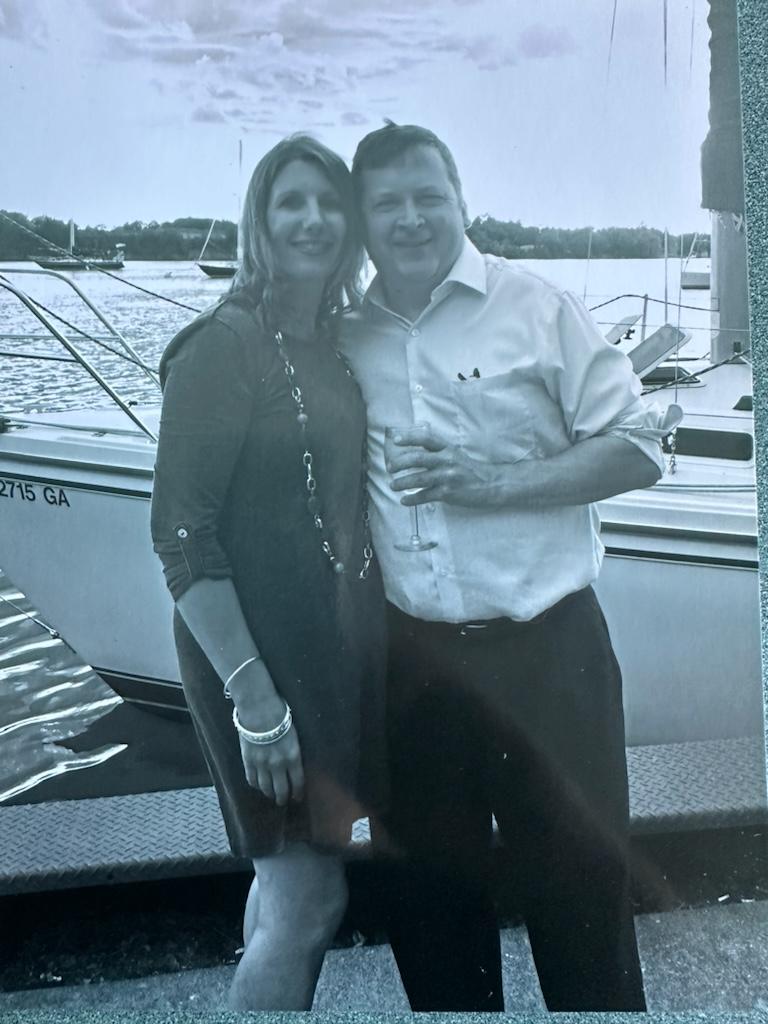
A gracious elderly friend taught me to place my hand on my heart to feel each beat. Doing so lets us know we are alive and we have purpose; it also signifies respect, honesty, and trustworthiness. Try placing your hand over your heart; can you feel each beat? Now, say a few affirmations aloud and notice the tranquility that will set in. Dr. Holly Oxhandler is a well-known social worker whose research centers around spirituality and mental health. Oxhandler 2022 discusses the importance of leaning in, processing, and becoming centered in prayer during the grief season. Centering on prayer allowed me to slow down and connect with my inner self and higher power; it helped me to loosen the grip on all that I could not control.
Like me, you will never be the same person ever again following the magnitude of grief and loss. I recognized the reason for “Why can’t I stay the same person”? This is because not only of a multitude of losses but, more significantly, all that was gained during the journey. I now know that if we give our suffering purpose, it will metamorphose into an unspeakable, powerful force for good in this world. Please know that you are so worth caring for and tending to the gift of your life while learning to carry grief and loss. Hospice bereavement counselors were there for me and they can help you too; they provided written materials and used active listening skills to support me. May peace be with you.
Harris, S. (2017). Death expands us: An honest account of grief and how to rise above it. Lioncrest Publishing.
Oxhandler, H.K. (2022). Soul of the helper: Seven ways to see the sacred in yourself so you can see it in others. Templeton Press.
Closing thoughts from Kimberly Grande, Bereavement Counselor, Niagara Hospice
Valerie’s story is one of resilience and hope. Your story is one of courage and trust. Until a person is in the midst of deep grief one does not quite understand the bravery it requires to continue on. “I am still here,” is Val’s opening statement. An affirmation in itself. Affirmations are honest statements that can help one focus and gain inner strength in moving through life. When used consistently, affirmations can create lasting changes in your mindset, helping you to develop a greater sense of self-compassion and a more hope-filled perspective. As Val’s story illustrates, in the context of grief, affirmations can be a powerful tool for fostering healing, acceptance, and growth, providing comfort and support as you navigate the challenges of loss. There are a wealth of affirmation sources you can find in the book store or online, and these are solid resources. However, if you are able to create your own affirmations, based on your immediate emotions, struggles and hopes, these statements will have a greater impact as you repeat them to yourself. Val created affirmations as she journeyed through her grief, and at times would return to previous affirmations as they became relevant to her experience in the moment. Whether you create your own or borrow affirmations from another source, it is most beneficial to choose statements that speak to you personally, ones that resonate with your soul and are true to your immediate experience.
More examples of affirmations pertinent to grief include:
- I permit myself to grieve and to feel my emotions fully.
- I am patient with myself as I navigate the grieving process.
- I am surrounded by love and support, even during my darkest moments.
- My loved one’s memory lives on in my heart as our shared memories.
- I am strong and resilient, even when faced with loss.
- It is okay for me to feel both sadness and moments of joy.
- I am capable of healing and finding peace after loss.
- I honor the connection I shared with my loved one and cherish our time together.
- Each day, I take small steps toward healing and growth.
- I am worthy of love, compassion, and support as I grieve.
Just as each mourning person’s grief is unique to themselves, so too is the type of support that meets one’s needs personal and individualized. As we continue to bring you this blog, we will provide testimonies, ideas and resources to offer you options as you grieve. Some will speak to you, and others will not rest well with you. Accept the pieces that fit you, and let go the ones that do not fit. The most important take away this date is to permit yourself to grieve the way that best fits you and your loss. We honor your grief, and we wish you peace as you journey in courage and sorrow.
Niagara Hospice Grief Support Specialists will be here to help guide and support you, validate your feelings, facilitate your healing, and listen without judgment as you process the vast emotions of grief and adjust to the world without your loved one. Call (716) 280-0777 or email Bereavement@NiagaraHospice.org to learn more about our services.

